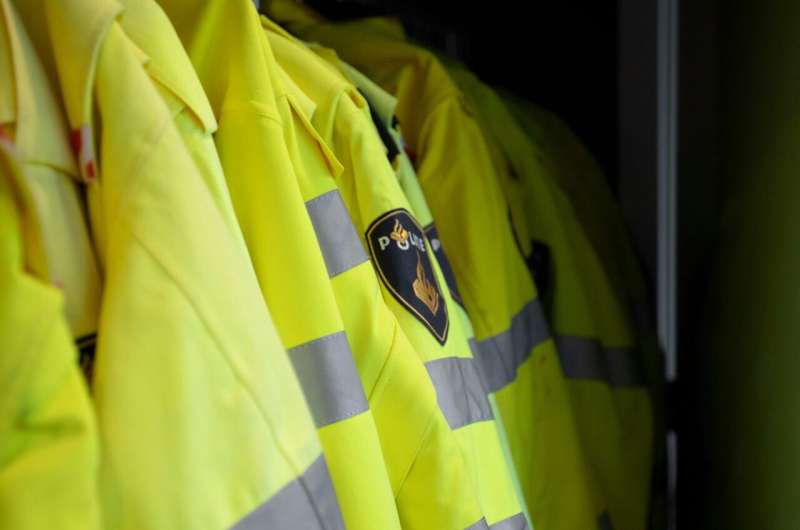This article has been reviewed according to Science X's editorial process and policies. Editors have highlighted the following attributes while ensuring the content's credibility:
fact-checked
trusted source
proofread
Police have become further removed from people in the Netherlands, study asserts

Since the crisis of authority in the Netherlands in the 1960s, the Dutch police has tried to integrate into society, aiming to become a police force that knows what goes on in the neighborhoods and is in contact with the public.
And yet, the police are becoming further and further removed from people, concludes researcher Ivo van Duijneveldt in his Ph.D. thesis, which he is defending at Radboud University on 4 June. "It is imperative that the police work on building and maintaining legitimacy."
Whereas in the 1950s police authority was still taken for granted, this changed dramatically in the 1960s. "In 1966, in Amsterdam, there were multiple violent confrontations between the police and the public. Innocent behavior, such as dancing around a fountain, was punished harshly by the police," says researcher Ivo van Duijneveldt.
"This led to widespread public criticism. Critical voices were also heard within the police: Is the police force just an instrument for enforcing the will of the government, or should it serve society?"
In response to this crisis of authority and legitimacy, a generation of young police leaders formulated a new vision of the role and place of the police in society. Their vision centered on the idea of integrating the police into society. The police had to base its legitimacy on its relationship with the public, not just on the letter of the law.
This meant that policemen had to work actively to gain acceptance for their actions in society. And the police had to do their work close to the people, in the neighborhoods.
Embedding under pressure
Ivo van Duijneveldt has been researching the social function of the police in the Netherlands for 15 years. Interviews with police chiefs and neighborhood officers show that the social integration model is still influential.
"There is broad support for the idea that the police should know the people and vice versa. But at the same time, I have come to the conclusion that the police organization is moving in the opposite direction. Since the formation of the national police in 2013, half of the police stations have been closed. The police have become more distant and therefore in danger of losing connection with the public."
Social order
People's views on the role of the police are also changing. Van Duijneveldt says, "There is a lot of focus on crime control. That is important, of course, but the vast majority of daily police work is about very different problems: social problems in neighborhoods, and helping people.
"This social function of police work is receiving little attention, while it is incredibly important for citizens. And to do this job well, you really need to understand what is happening in the society you serve. Modern society may be more complex than that of the 1960s, but that is precisely why integration is important. The police must maintain contact with all layers of society to be able to gauge tensions."
Van Duijneveldt is concerned about the development the police is undergoing: there is more distance and less room for meeting citizens. "The movement is towards judicial policing, towards more repression, and more control. In the future, the technological capabilities of big data and artificial intelligence might mean that this trend is likely to deepen.
"It is easier to continuously monitor everyone. But is that what we want and expect from the police? I think we need to think very consciously about what kind of police we want."
Provided by Radboud University



















